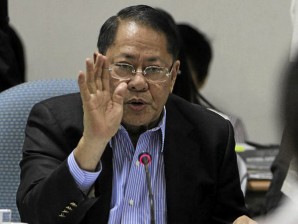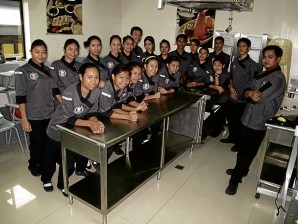MANILA, Philippines – The K to 12 program, which aims to add two years to basic educational system of the country, was passed in the Senate on third and final reading Monday.
“K to 12 is about enhancing the curriculum that better prepares every Filipino child, and about innovating lessons that are taught to each learner,” Senator Edgardo Angara, author of Senate Bill No. 3286 or the Enhanced Basic Education Act of 2012, said in a statement.
Once made into law, the bill will add two years of Senior High School to the current four years of Junior High School that students spend in secondary education. Basic education will become composed of one year in Kindergarten and six years in elementary.
Angara believes that the K to 12 program will boost Filipinos’ competitiveness on the international stage noting that the Philippines was only one of three countries which does not implement it.
The new curriculum for basic education will be designed through a collaboration of the Department of Education (DepEd), Commission on Higher Education and the Technical Education and Skills Development Authority.
“To achieve an effective enhanced basic education curriculum, DepEd shall undertake consultations with other national government agencies and other stakeholders including, but not limited to, the Department of Labor and Employment (DOLE), Professional Regulation Commission (PRC), private and public schools associations, national student organizations, national teacher organizations, parents-teachers associations, and the chambers of commerce and/ or industry associations on matters affecting the concerned stakeholders,” the bill said.
The K to 12 program however has been criticized because of the increased burden parents will have to endure pay for the two more years in school.
“This is more than just about expanding basic education by adding two years to a 10-year cycle. This is about the State, the Filipino people as a single policy, fulfilling the solemn duty to educate and nurture its citizens to the best of our collective abilities,” Angara concluded.



